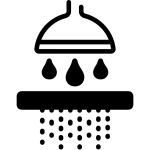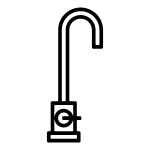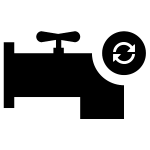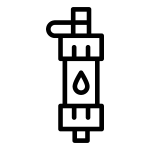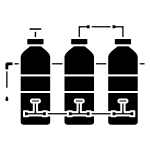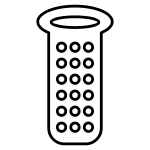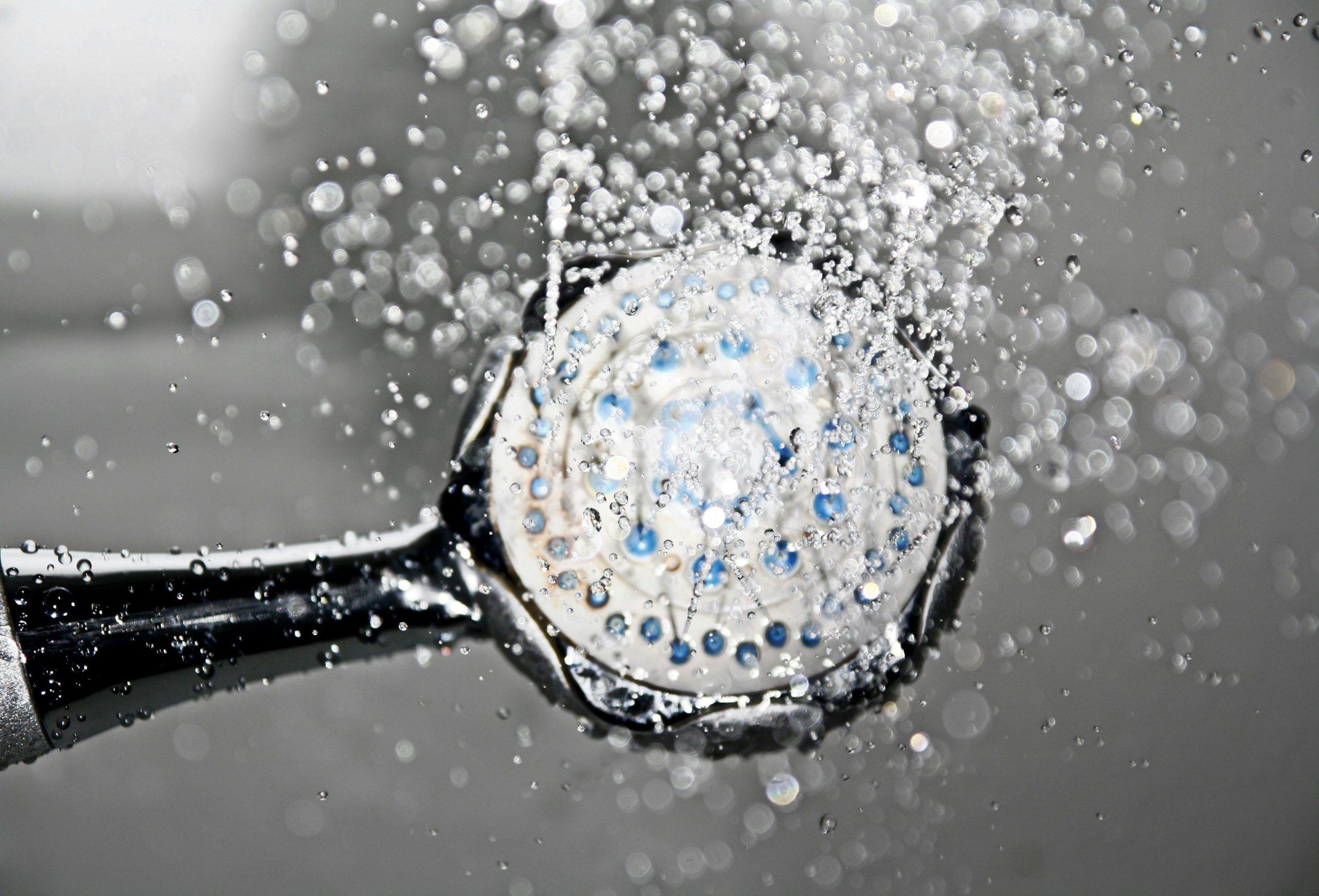Clean, safe, and healthy water is essential for every household. Whether you’re using water for drinking, cooking, or bathing, the quality of that water can directly impact your health and well-being. Among various water filtration options available today, carbon water filter systems for home stand out as one of the most efficient and cost-effective solutions.
In this in-depth guide, we’ll explore everything you need to know about carbon water filter systems — how they work, why they’re effective, their benefits, types, maintenance tips, and how to choose the best one for your home. Let’s dive in!
What Is a Carbon Water Filter System?
A carbon water filter system is a type of water filtration setup that uses activated carbon to remove contaminants, impurities, and unwanted substances from water. These systems are commonly installed in households to ensure clean, odor-free, and great-tasting water.
How It Works
Carbon filters work through a process called adsorption (not absorption). When water passes through the carbon media, contaminants stick to the surface of the carbon particles.
The most commonly used material is activated charcoal, derived from coconut shells or coal, which has a vast surface area filled with tiny pores, making it extremely efficient at trapping impurities.
Benefits of Carbon Water Filter Systems for Home
1. Removes Chlorine and Bad Taste
Chlorine is often added to municipal water supplies to kill bacteria, but it can leave an unpleasant taste and smell. Carbon filters effectively remove chlorine, making water more enjoyable to drink.
2. Improves Odor and Appearance
Have you noticed a strange smell or cloudy appearance in your tap water? Carbon water filters remove organic compounds and other contaminants that cause unpleasant odors and discoloration.
3. Removes Harmful Chemicals
Carbon filters are excellent at removing:
- Volatile organic compounds (VOCs)
- Pesticides
- Herbicides
- Industrial solvents
- Pharmaceuticals
These contaminants can cause serious health problems if consumed regularly.
4. Protects Appliances and Fixtures
By removing sediment and impurities, carbon water filter systems help extend the lifespan of your plumbing, faucets, and appliances like dishwashers and washing machines.
5. Eco-Friendly Solution
Instead of buying bottled water (which creates plastic waste), installing a carbon water filter system at home is a sustainable and eco-conscious decision.
Types of Carbon Water Filter Systems for Home
Depending on your household needs and budget, there are various types of carbon water filters available:
1. Whole House Carbon Water Filters
These systems are installed at the main water line, filtering all the water that enters your home. Ideal for:
- Homes with hard water
- Families with multiple water usage points
- Filtering water for bathing, laundry, and kitchen use
2. Under-Sink Carbon Filters
These are installed under your kitchen sink to provide filtered water from a single faucet. Great for:
- Cooking
- Drinking water
- Tea and coffee brewing
3. Countertop Carbon Filters
Easy to install and budget-friendly, countertop filters connect directly to your faucet. They are portable and effective for:
- Rental homes
- Small kitchens
- Temporary setups
4. Refrigerator Inline Filters
These are installed behind your fridge to purify water used for ice makers and water dispensers.
5. Shower Filters with Carbon Media
Specialized filters that remove chlorine and sediment from shower water — perfect for people with sensitive skin or hair issues.
Activated Carbon: Granular vs. Block
Carbon filters generally come in two forms:
1. Granular Activated Carbon (GAC)
- Uses loose carbon granules
- Better flow rate
- Common in whole house filters
2. Carbon Block Filters
- Uses compressed carbon powder
- Ideal for drinking water applications
- More effective in removing smaller particles
Which one is better?
For general household water filtering (whole house), GAC is sufficient. For higher purity (like drinking), carbon block filters are more efficient.
Common Contaminants Removed by Carbon Filters
| Contaminant | Removed by Carbon Filter? |
|---|---|
| Chlorine | ✅ Yes |
| Chloramine | ✅ With Catalytic Carbon |
| Lead | ⚠️ Only with certain filters |
| Sediment | ✅ Pre-filters recommended |
| Pesticides & VOCs | ✅ Yes |
| Bacteria & Viruses | ❌ Not fully |
Note: Combine carbon filters with UV light or reverse osmosis systems for complete disinfection.
Signs You Need a Carbon Water Filter System
Still unsure if you need one? Look out for these signs:
- Foul smell in tap water
- Bad taste, metallic or chemical-like
- Yellow or cloudy water
- Skin irritation after showering
- Sediment buildup in kettles or appliances
- High chlorine levels in water test reports
How to Choose the Best Carbon Water Filter System for Your Home
When buying a carbon water filter, consider these factors:
✅ Water Quality
Get your water tested (local lab or test kits) to identify what contaminants need removal.
✅ Flow Rate
Choose a system that matches your household water usage — whole house filters generally support 10–20 GPM (gallons per minute).
✅ Filtration Capacity
Check the lifespan of the filter — some last 3–6 months, others up to a year or more. Look for systems with easy-to-replace cartridges.
✅ Certification
Look for filters certified by NSF/ANSI standards for:
- Chlorine reduction (NSF 42)
- Contaminant removal (NSF 53)
✅ Maintenance
Pick a low-maintenance system with easy filter changes and clear indicators for when replacements are due.
✅ Budget
From under-sink systems ($50–$150) to whole house systems ($300–$1,000), there’s a solution for every budget.
Cuoll’s Recommended Carbon Water Filter Systems
At Cuoll, we offer a curated selection of premium carbon water filter systems that combine efficiency, durability, and affordability.
🔹 Cuoll Whole House Activated Carbon Filter
- GAC filter with 100,000-gallon capacity
- Removes chlorine, sediment, VOCs
- Easy installation kit included
🔹 Cuoll Under-Sink Carbon Block System
- Dual-stage filtration (carbon block + sediment)
- Compact design for modern kitchens
- Lasts up to 6 months per cartridge
🔹 Cuoll Shower Carbon Filter
- Ideal for hair & skin care
- Removes chlorine & rust
- Tool-free installation
👉 Browse all water filter systems on Cuoll
How to Maintain Your Carbon Water Filter System
Proper maintenance ensures long-term effectiveness:
- Replace filters regularly (as per manufacturer’s guidelines)
- Flush new filters before use
- Sanitize the system during filter replacement
- Monitor water pressure (clogs can reduce flow)
Set calendar reminders or subscribe to auto-shipment services for replacement filters.
Frequently Asked Questions (FAQ)
❓ Are carbon water filters safe?
Yes. They are widely used in homes and certified by health standards for safe water filtration.
❓ Can carbon filters remove fluoride?
No, carbon filters alone don’t remove fluoride. You need a reverse osmosis or activated alumina filter for that.
❓ How long do carbon water filters last?
Typically 3–12 months depending on water usage and filter type.
❓ Is carbon better than reverse osmosis?
They serve different purposes. Carbon removes chemicals and odors, while RO removes minerals, salts, and fluoride. Many households use both systems for optimal purification.
Final Thoughts
Investing in a carbon water filter system for your home is a smart, affordable step toward better health and higher quality of life. Whether you want great-tasting water, cleaner showers, or better protection for your appliances, carbon filtration offers reliable results.
Explore our wide range of carbon filter systems at Cuoll — and give your home the gift of pure, clean water today.
👉 Shop Now: Cuoll Carbon Water Filter Systems
💧 Breathe easy, drink clean. Only at Cuoll.


